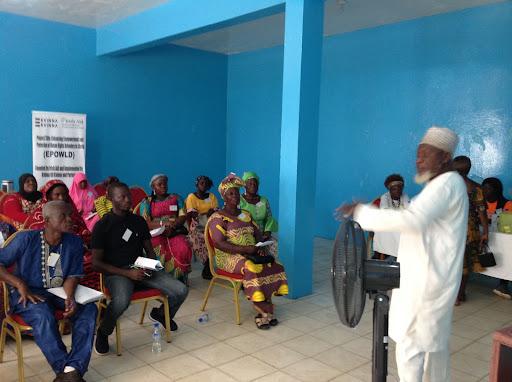Liberia: ‘Cultural Beliefs Responsible for Human Rights Abuse’

The event aimed at creating a safe space for discussion on issues relating to women and gender minorities.
--- Says Sheikh Swaray, the Executive Director of Muslim Aid Liberia
The Executive Director of Muslim Aid Liberia, Sheikh Swaray has disclosed that traditional cultural beliefs are responsible for human rights abuse in Liberia.
Swaray said if Liberia will have a good human rights record, Liberians must change their attitude toward each other as a way of avoiding the violation of others’ rights. He added that traditional leaders across the country are either Christians or Muslims and it is time to take human rights issues to the various religious houses to educate the public.
“People who go to Poro or Sande society are either Muslims or Christians and they try to violate people's rights on the basis of tradition or cultural belief. Tradition says a woman is subject to a man. Those traditional practices still remain,” Swaray said.
Swaray noted before the coming of Christianity and Islam, traditions and cultural beliefs existed and continued to be practiced, thereby leading to the violation of people's rights. The dialogue also aims at strengthening relationships and networks with duty bearers at the local and national levels and reflects on issues that affect women and gender minorities.
“It’s because of cultural beliefs that others’ rights are violated, especially women and girls. Men believed that women and girls are second to them and therefore, they don’t have rights. Additionally, we have to understand the rights of women and men and if this is done, we will be able to protect each other's rights,” Swaray said.
According to him, in the absence of such, others’ rights will continue to be violated — especially women and girls who have already been marginalized for years. Swaray argued that there’s no religion that protects the rights of women than Islam, “I strongly believe that Liberia needs advocacy towards human rights and women’s rights in particular and CHI continues to create awareness and educate our people.”
Swarary disclosure was made at a one-day dialogue aimed at creating a safe space for discussion on issues relating to women, gender minorities, and human rights. The meeting was organized by the Community Healthcare Initiative (CHI), LEGAL Association of Liberia, and others with funding from Irish Aid.
The meeting ended with a commitment from some traditional and religious leaders to address human rights issues. Also speaking, the Program Coordinator of Community Healthcare Initiative (CHI), Ramses A. Hutchins, said he believes that Liberia is prepared to end human rights violations through continued engagement of human rights issues.
“The time is now and we must continue the engagement about things that affect people. Creating a safe space to discuss human rights issues is a way of addressing human rights violations or abuse. Today, we have people who are decision-makers being part of this discussion and they are assuring of taking the message back in their various communities,” Hutchins said.
For his part, the Director for Coordination and Communal Farming at the Ministry of Internal Affairs (MIA), Samuel T. Fayiah, said Liberia is making progress in addressing human rights issues considering the establishment of human rights organizations.
Fayiah, who served as facilitator, said he believes that the churches and mosques need to help in discussing human rights protection in order to increase Liberia’s human rights record.
Setta Saah, the National Coordinator of the National Council of Chiefs and Elders, said there’s a need to engage the traditional people as human rights violations are being carried out mainly in the rural parts of the country.
